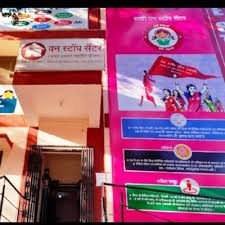Counselling, legal aid, shelter: One-stop centres come to rescue of women facing abuse

In India, many women suffer abuse silently behind closed doors. For them, One-Stop Centres (OSCs) offer hope. These centres act as safe spaces, providing essential services like counselling, legal aid, shelter, and medical help — all in one place. Survivors no longer need to navigate multiple systems for help. With OSCs, they receive immediate and coordinated support.
What Are One-Stop Centres?
The Government of India launched OSCs in 2015 under the Sakhi scheme by the Ministry of Women and Child Development (MWCD). These centres support women affected by physical, emotional, sexual, psychological, or economic abuse. Any woman in distress — regardless of age or marital status — can access help.
Each centre operates 24/7. Most are located within hospital campuses or district headquarters. This makes it easier for survivors to reach them in emergencies. By 2025, India has over 700 operational OSCs, and more are planned.
What Services Do OSCs Offer?
The strength of OSCs lies in their all-in-one approach. They bring critical services under one roof. This ensures faster help and fewer complications for women in crisis. Key services include:
- Medical Care: Centres connect survivors to hospitals for treatment. Trained staff are available to assist in emergencies.
- Police Assistance: OSCs help women file First Information Reports (FIRs). They also assist with protection orders under the Domestic Violence Act, 2005.
- Legal Aid: Legal advisors explain rights and guide survivors through the legal process. This helps them make informed choices.
- Counselling: Professional counsellors offer mental and emotional support. Survivors can begin healing in a safe space.
- Shelter: OSCs provide short-term shelter for up to five days. If needed, staff refer women to long-term homes like Swadhar Greh.
- Rehabilitation Support: Centres help survivors rebuild their lives. They connect them to skill training, jobs, or education programmes.
Real Stories of Survival and Strength
Aarti (name changed), a 26-year-old from Madhya Pradesh, is one such survivor. She endured years of domestic abuse. One night, neighbours called the police after hearing her screams. Aarti was taken to a local OSC. There, she received medical care, counselling, and legal guidance.
Today, she lives independently with her two children. She works as a tailor and dreams of starting her own business. Her story is not unique — similar accounts come from across India.
According to MWCD data, over 4.5 lakh women have received help from OSCs as of 2025. These numbers show how vital these centres have become.
Why Awareness Still Lags
Despite their importance, many women don’t know about OSCs. Lack of awareness is a major barrier. Survivors often don’t realize that free, reliable help is available. Others fear social stigma or backlash from family.
To fix this, local governments and NGOs run outreach campaigns. They visit schools, villages, and slums to educate people. Some states have launched toll-free helplines linked to OSCs. These helplines offer support without needing to visit in person.
Social media and digital platforms are also being used to raise awareness. More visibility means more lives saved.
Challenges Still Exist
While OSCs are a strong step forward, challenges remain:
- Staff Shortages: Many centres lack trained counsellors or legal staff.
- Funding Gaps: Some OSCs face delays in receiving funds, affecting their work.
- Limited Shelter Space: Centres often don’t have enough room for women needing long-term housing.
- Stigma and Fear: Survivors still fear judgment or retaliation, keeping them from seeking help.
Experts say the solution lies in expanding partnerships. More civil society involvement, regular staff training, and better monitoring will improve results. State support is also key — without it, centres struggle to serve effectively.
Why One-Stop Centres Matter
One-Stop Centres have changed how India addresses gender-based violence. These centres understand that abuse is not just a legal problem. It affects a woman’s body, mind, finances, and dignity. By offering support on all fronts, OSCs empower women to rebuild their lives.
More importantly, they treat survivors with respect and compassion. Survivors are not just cases — they are people with hopes, fears, and potential.
As India continues to battle gender inequality, OSCs stand as a symbol of care and justice. They show that a survivor-focused system is not only possible — it’s already working.
Final Word
If you or someone you know is experiencing abuse, help is available. Contact the Women’s Helpline at 181 or visit the Ministry of Women and Child Development website to find your nearest One-Stop Centre.
Reaching out is the first step. You are not alone.






